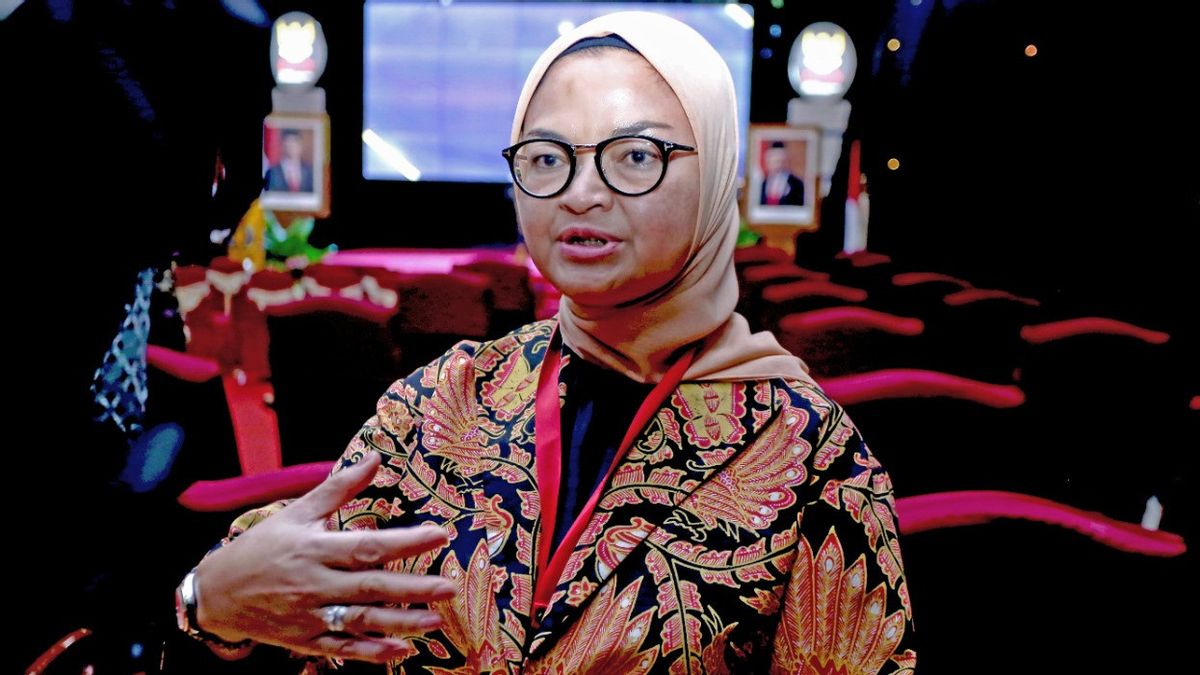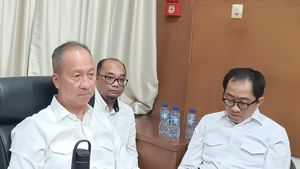JAKARTA - Member of Commission X DPR from the Golkar faction, Robert Joppy Cardinal, assessed that the Food and Drug Supervisory Agency (BPOM) had failed to monitor the distribution of drugs in the community.
Robert asked the Head of BPOM Penny Lukito to resign from her position as a form of responsibility for the acute kidney case which caused 143 children to die. The phenomenon of acute kidney failure in children due to Ethilen Glikol (EG) chemical contamination in cirrop drugs.
"BPOM and its officers who are responsible should place their positions on their negligence so that hundreds of children become victims, there is no need to wait to be fired!", Robert told reporters, Thursday, November 3.
Robert emphasized that the phenomenon of acute kidney failure in children should be a valuable lesson. At least, he said, it becomes an evaluation material and in-depth introspection for BPOM in carrying out its functions to oversee the circulation of drugs in the country.
"Because this accident occurred because BPOM was not working, so it should be fired, and also prosecuted with the owners of the pharmaceutical companies involved," said the West Papua electoral district Golkar legislator.
Adapun alasan BPOM harus bertanggung jawab, kata Robert, yakni terkait salah satu temuan 7 obat Sampor dengan sprucean kchemia EG dan Dietilen Glikol (DEG) di luar batas penyebab kasus kelompian remilit pada anak.
According to him, the findings are evidence that BPOM is weak in monitoring the production of drugs and their distribution. Meanwhile, the termination and withdrawal of the drug were only carried out after the victim began to emerge.
"We should have learned from BPOM Singapore, which really works and is responsible for all the medicines and food circulating in the community," concluded Robert.
Previously, BPOM actually dragged the Ministry of Trade (Kemendag) in matters of importing chemical compounds such as PG and PEG into Indonesia.
In terms of supervision, the Head of BPOM Penny K Lukito said, BPOM only conducts checks on pharmaceutical grade raw materials that are categorized as prohibitions and restrictions (Lartas).
According to Penny, these items must obtain a BPOM permit through an Import Certificate (SKI) before being brought to Indonesia.
"The raw materials generally enter through SKI BPOM. Especially for PG and PEG solvents, the entry is not through SKI BPOM, but through the Ministry of Trade, non-larg," said Penny in a Working Meeting with Commission IX, Wednesday, November 3.
The English, Chinese, Japanese, Arabic, and French versions are automatically generated by the AI. So there may still be inaccuracies in translating, please always see Indonesian as our main language. (system supported by DigitalSiber.id)













